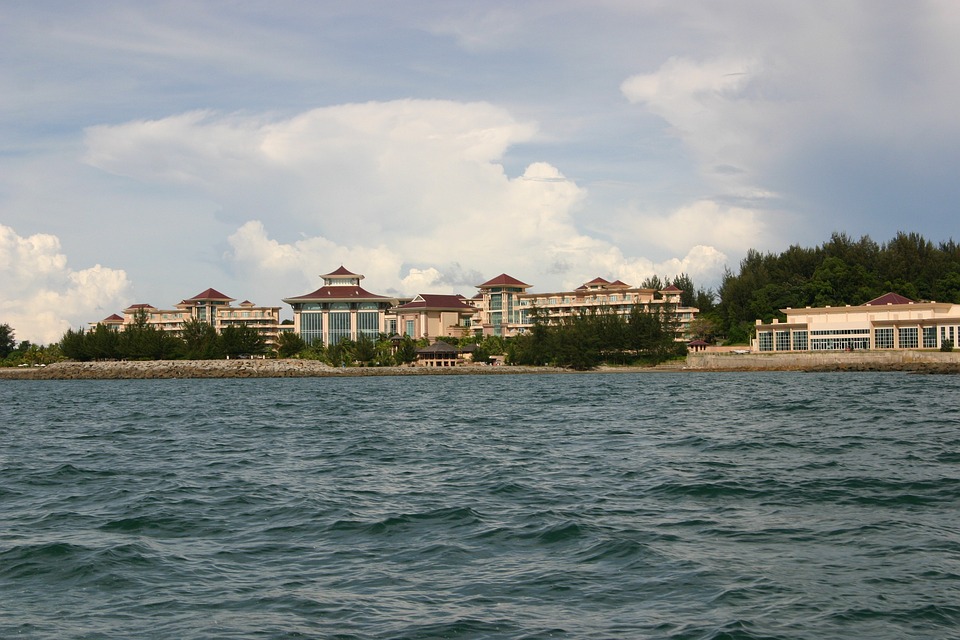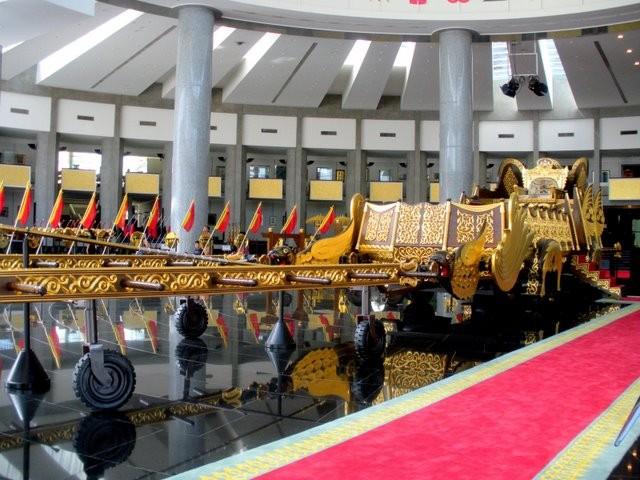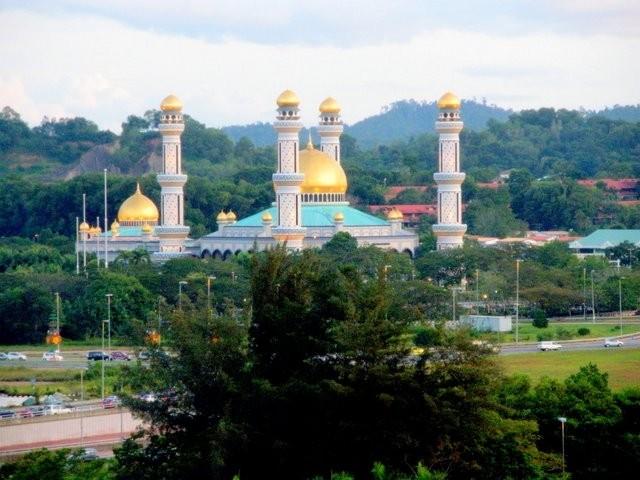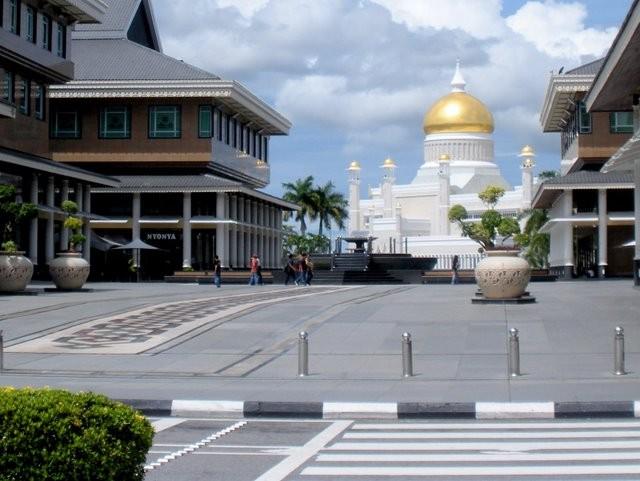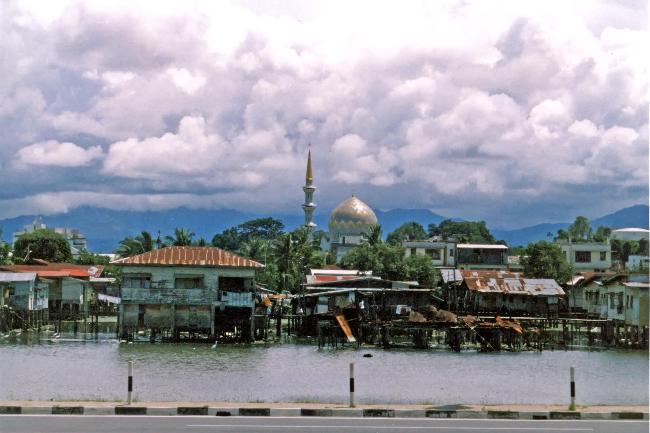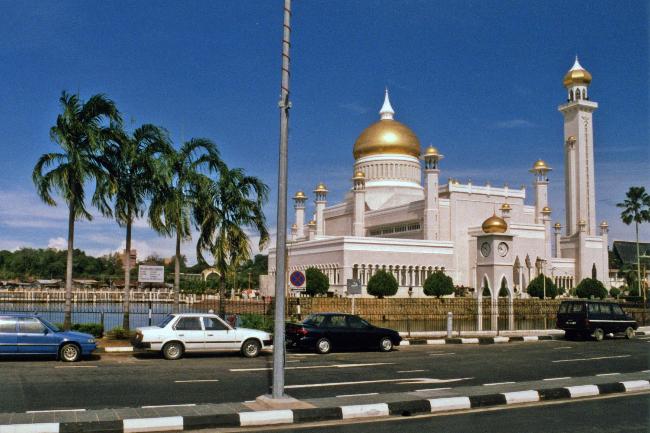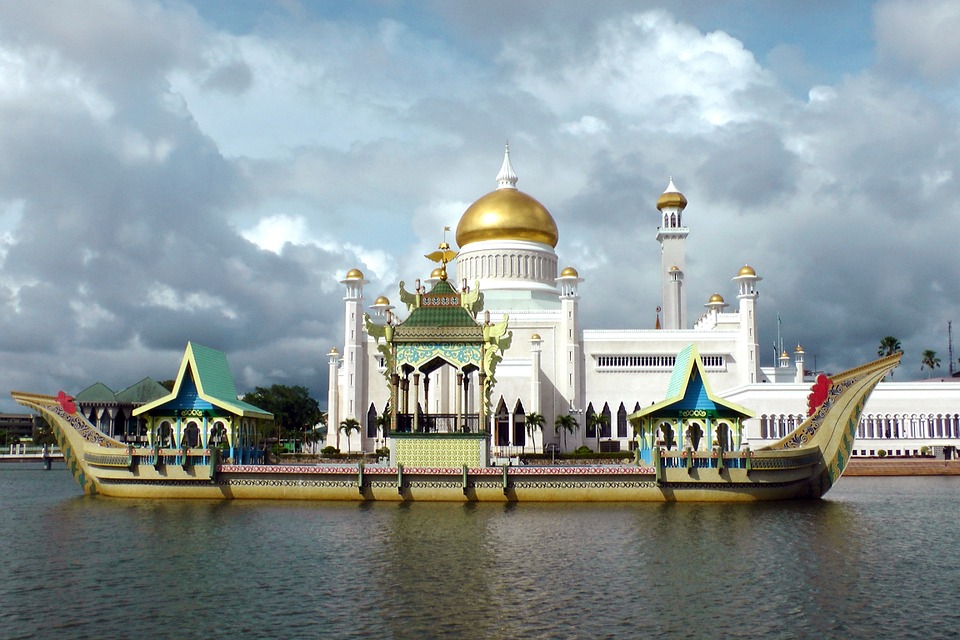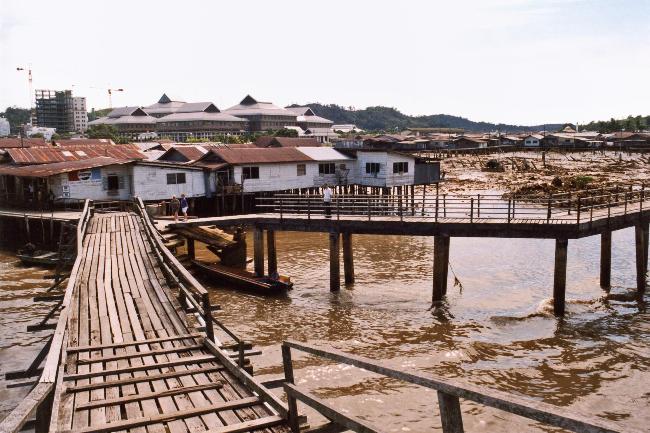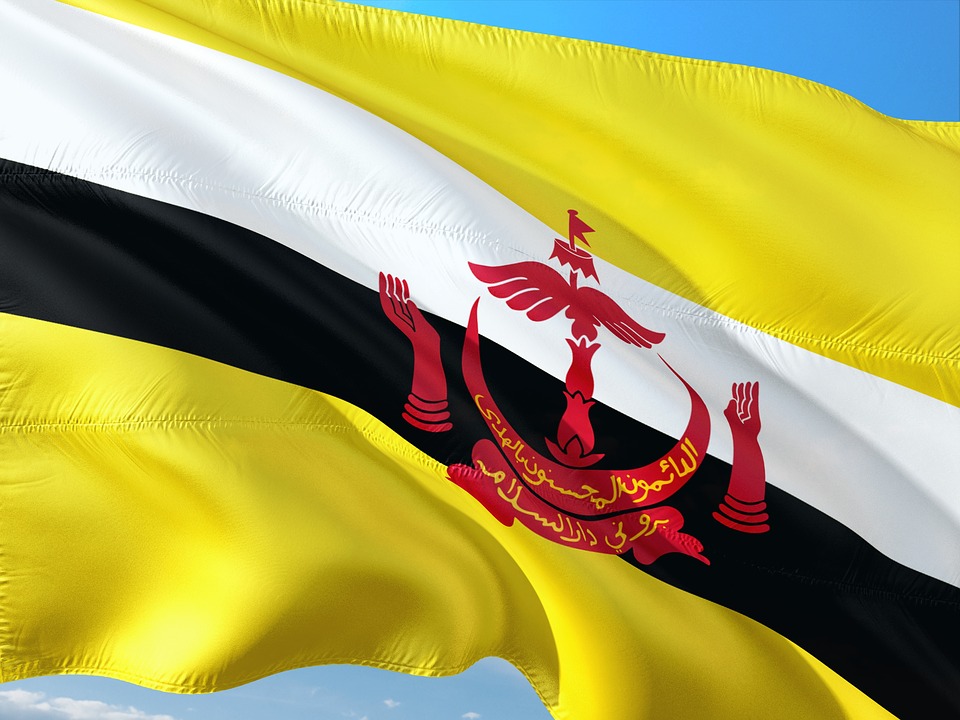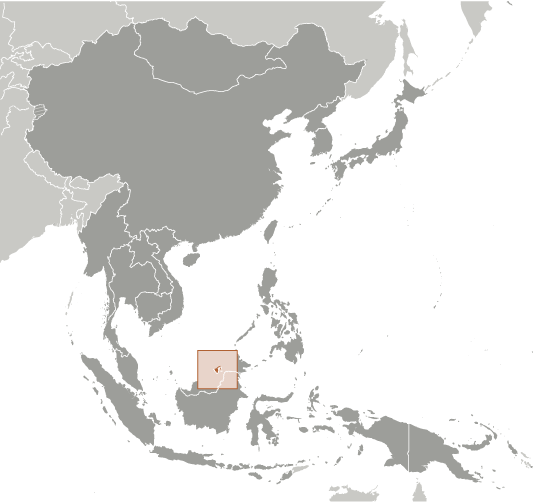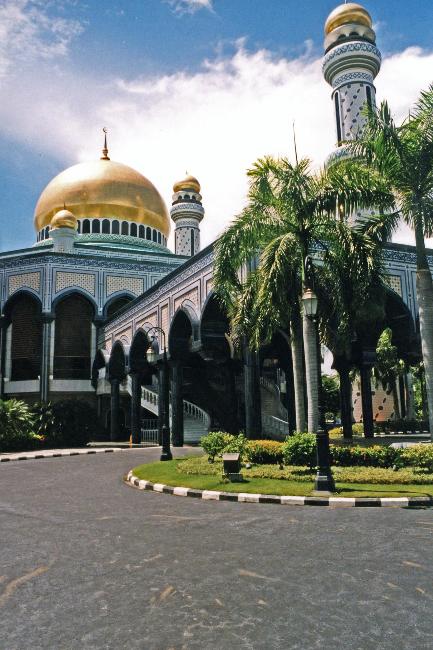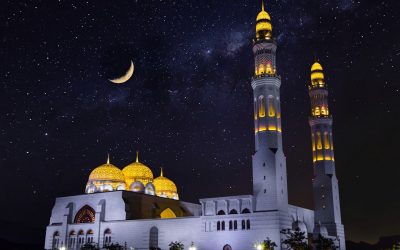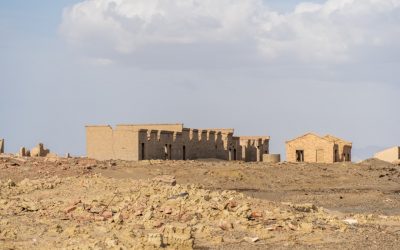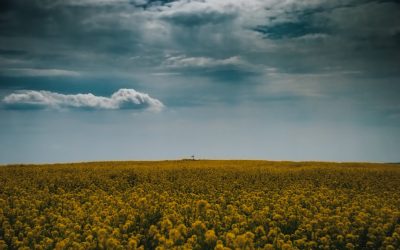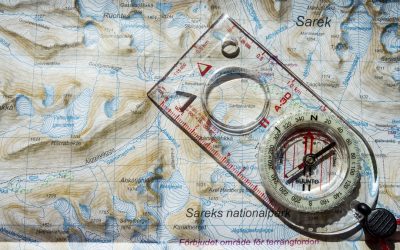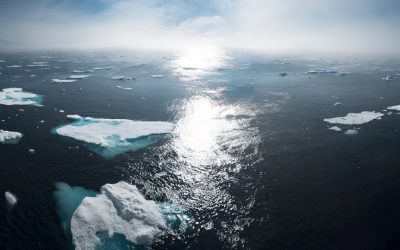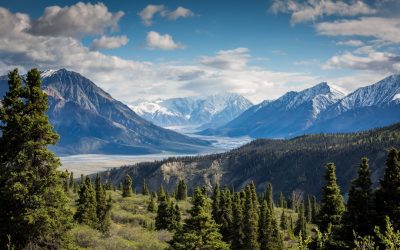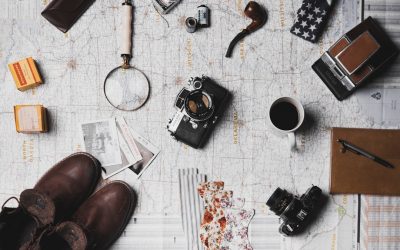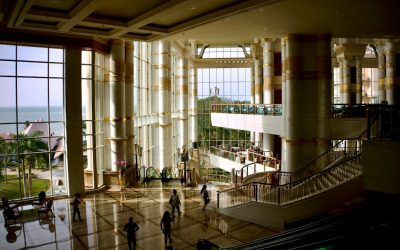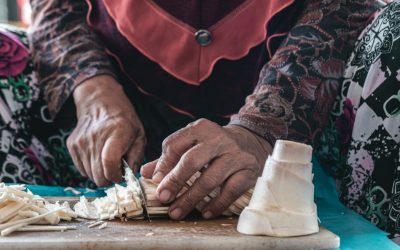Brunei
(Negara Brunei Darussalam (State of Brunei Darussalam))

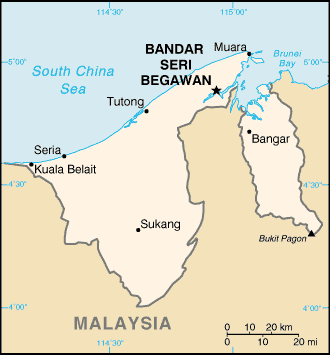
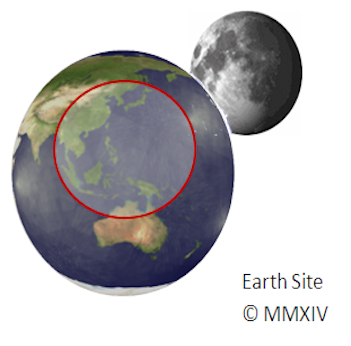
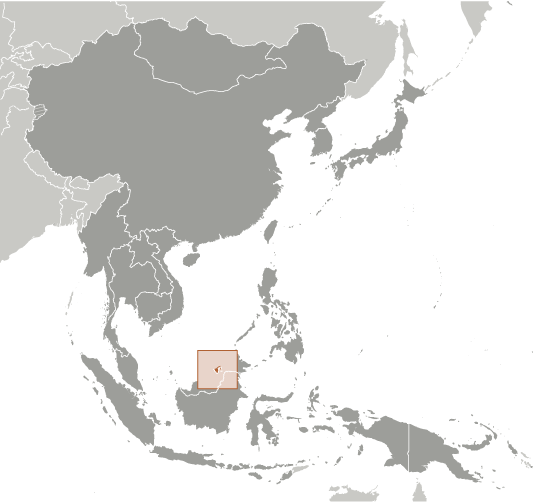
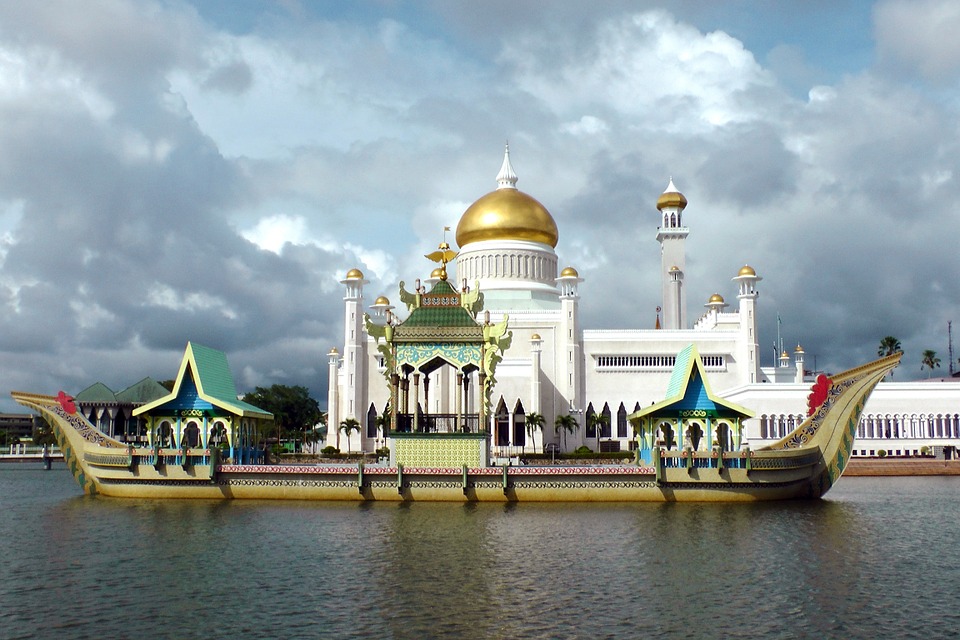
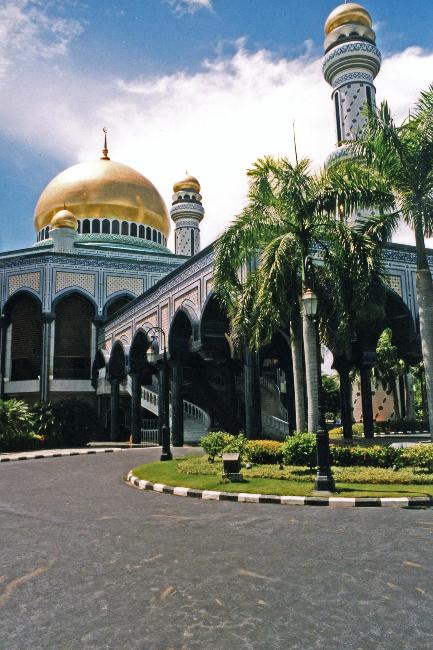
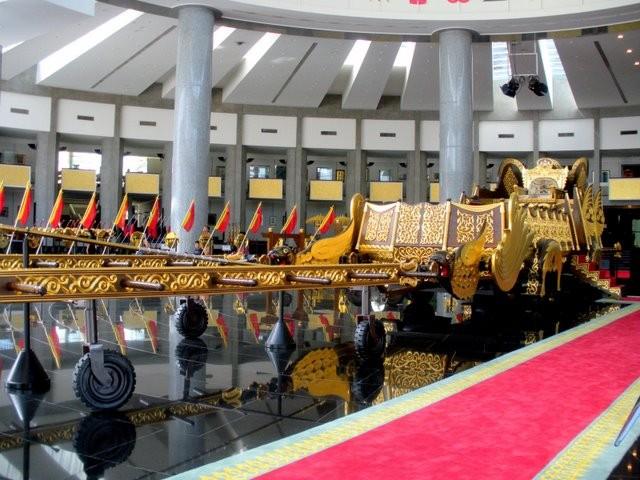
Capital of Brunei : Bandar Seri Begawan
Population (Estimated July 2012): 408,786
Area: 5,765 km2 or 2,226 mi2
Currency: Brunei dollar (B$)
Official Language: Malay
Political Information: Malay Islamic Monarchy
Official Religion: Muslim
(approximately 67% of the population are Muslim, 13% are Buddhist, 10% are Christian and 10% have other religious beliefs)
Highest Mountain: Bukit Pagon at 1,850m or 6,070ft
GDP Official Exchange Rate (OER is more precise at gauging a countries economic power)
(Estimated 2011): $15.6 billion (US$) or £9,360 million (GBP)
GDP (OER) Per Capita (per member of the population estimated 2011): (US$) or (GBP)
GDP Purchasing Power Parity (PPP is good for gauging living conditions and use of resources but not as accurate as OER. This data has been calculated based on the sum value of all goods and services produced in the country valued at prices prevailing in the United States)
(Estimated 2011): $21.11 billion (US$) or £12,666 million (GBP)
GDP (PPP) Per Capita (per member of the population estimated 2011): $49,400 (US$) or £29,640 (GBP)
Time Zone (GMT/UTC): +8:00
Counties/Provinces/States: (Districts) Belait, Brunei-Muara, Temburong, Tutong
Leaders: Sultan and the first Prime Minister Hassanal Bolkiah with the crown Prince Al-Muhtadee Billah. (since 5 October 1967)
Sources: CIA World Fact Book, Encyclopaedia Britannica.
Brunei, officially known as the Nation of Brunei, the Abode of Peace, is a small but prosperous country located on the island of Borneo in Southeast Asia. It is bordered by Malaysia and the South China Sea. Despite its small size, Brunei has a population of approximately 450,000 people.
Brunei is known for its high standard of living and strong economy. It has one of the highest GDP per capita in the world, largely due to its abundant reserves of oil and natural gas. The country’s wealth has allowed it to provide its citizens with free education, healthcare, and other social benefits. Brunei also boasts a low crime rate and a high level of safety, making it an attractive destination for both tourists and expatriates.
History of Brunei: A tale of a powerful empire and modern-day monarchy
Brunei has a rich history that dates back centuries. In the 15th and 16th centuries, Brunei was a powerful empire that controlled much of Borneo and parts of the Philippines. It was known for its strong navy and extensive trade networks. However, the empire began to decline in the 17th century due to internal conflicts and external pressures from European powers.
In the 19th century, Brunei came under British influence and became a protectorate of the British Empire. It remained under British control until 1984 when it gained full independence. Today, Brunei is a modern-day monarchy with Sultan Hassanal Bolkiah as its ruler. The Sultan has been in power since 1967 and is one of the world’s longest-reigning monarchs.
Geography of Brunei: A land of lush rainforests, pristine beaches and oil-rich waters
Brunei is blessed with diverse geography that includes lush rainforests, pristine beaches, and oil-rich waters. The country is covered in dense tropical rainforests, which are home to a wide variety of flora and fauna. These rainforests are protected by the government and are part of Brunei’s commitment to preserving its natural resources and biodiversity.
In addition to its rainforests, Brunei also has beautiful beaches along its coastline. The beaches are known for their clear blue waters and white sandy shores, making them popular destinations for both locals and tourists. The country’s offshore waters are also rich in oil and natural gas reserves, which have played a significant role in Brunei’s economy.
Culture and Traditions of Brunei: A fusion of Malay, Chinese and Islamic influences
Brunei’s culture is a unique fusion of Malay, Chinese, and Islamic influences. The majority of the population is Malay, and the Malay culture is deeply ingrained in Bruneian society. Traditional Malay customs and practices are still observed, such as the wearing of traditional clothing and the celebration of festivals like Hari Raya Aidilfitri.
Chinese culture also plays a significant role in Brunei, particularly in the areas of business and commerce. Many Chinese immigrants have settled in Brunei over the years, bringing with them their traditions and customs. Chinese festivals such as Chinese New Year are widely celebrated in the country.
Islam is the official religion of Brunei, and Islamic traditions are an integral part of Bruneian culture. The call to prayer can be heard throughout the day, and mosques are scattered across the country. Islamic values such as respect for elders and hospitality are deeply ingrained in Bruneian society.
Economy of Brunei: A thriving oil and gas industry and diversifying sectors
Brunei’s economy is heavily reliant on its oil and gas industry, which accounts for a significant portion of its GDP. The country is one of the largest exporters of liquefied natural gas (LNG) in the world. The revenue generated from the oil and gas sector has allowed Brunei to provide its citizens with a high standard of living and generous social benefits.
However, Brunei is aware of the need to diversify its economy and reduce its reliance on oil and gas. The government has been actively promoting entrepreneurship and innovation to stimulate economic growth in other sectors. Efforts have been made to develop industries such as tourism, agriculture, and information technology. Brunei is also exploring renewable energy sources to reduce its carbon footprint and promote sustainable development.
Education in Brunei: A focus on quality education and lifelong learning
Education is highly valued in Brunei, and the government has made significant investments in the education system. The country has a well-developed education system that provides free education from primary school to university level. The literacy rate in Brunei is close to 100%, reflecting the importance placed on education.
Brunei places a strong emphasis on quality education and lifelong learning. The curriculum is designed to provide students with a well-rounded education that includes academic subjects as well as moral and religious education. The government has also implemented initiatives to promote STEM (Science, Technology, Engineering, and Mathematics) education and digital literacy to prepare students for the future.
Tourism in Brunei: Exploring the country’s natural beauty and cultural heritage
Brunei may not be as well-known as its Southeast Asian neighbors when it comes to tourism, but it offers a unique travel experience for those who visit. The country is home to stunning natural attractions such as Ulu Temburong National Park, which is known for its pristine rainforests and diverse wildlife. The park offers activities such as canopy walks, river cruises, and jungle trekking.
Brunei also has a rich cultural heritage that can be explored through its historical sites and museums. The Royal Regalia Museum showcases the royal artefacts of the Sultan, while the Brunei Museum provides insights into the country’s history and culture. The Kampong Ayer, a water village built on stilts, is another popular tourist attraction that offers a glimpse into traditional Bruneian life.
The government of Brunei is actively promoting sustainable tourism and preserving its cultural heritage. Efforts have been made to develop eco-friendly tourism initiatives and promote responsible travel practices. The country’s commitment to preserving its natural resources and cultural heritage makes it an attractive destination for eco-conscious travellers.
Food and Cuisine in Brunei: A delectable mix of Malay, Chinese and Indian flavors
Brunei’s cuisine is a delightful fusion of Malay, Chinese, and Indian influences. The country’s diverse culinary scene offers a wide variety of dishes that cater to different tastes and preferences. Malay cuisine forms the foundation of Bruneian food, with dishes such as nasi lemak (coconut rice), rendang (spicy meat stew), and satay (grilled skewered meat) being popular choices.
Chinese cuisine also plays a significant role in Bruneian food culture, with dishes such as dim sum, noodles, and stir-fried vegetables being commonly enjoyed. Indian cuisine has also made its mark in Brunei, with dishes such as roti canai (Indian flatbread) and curry being popular choices.
One unique dish that is synonymous with Brunei is ambuyat. Ambuyat is made from the sago palm tree and has a sticky texture. It is typically eaten with a variety of side dishes such as grilled fish, vegetables, and sambal (spicy sauce). Another popular dish is nasi katok, which consists of rice topped with fried chicken and served with a spicy sauce.
Sports and Recreation in Brunei: A variety of outdoor activities and traditional games
Brunei offers a range of sports and recreational activities for both locals and visitors to enjoy. The country’s lush rainforests provide the perfect backdrop for outdoor activities such as hiking, jungle trekking, and bird-watching. The Ulu Temburong National Park is a popular destination for nature lovers and adventure enthusiasts.
Traditional games also play a significant role in Bruneian culture. One such game is sepak takraw, a traditional Malay sport that is similar to volleyball but played with a rattan ball. It requires agility, skill, and teamwork, and is often played during festivals and special occasions.
Brunei also has a strong focus on promoting sports and healthy lifestyles. The government has invested in sports facilities and infrastructure to encourage participation in sports at all levels. The country has hosted international sporting events such as the Southeast Asian Games and the Asian Youth Games, further showcasing its commitment to sports development.
Future of Brunei: Challenges and opportunities for sustainable development and growth
While Brunei has enjoyed economic prosperity due to its oil and gas reserves, it faces challenges in ensuring sustainable development and growth in the future. The country’s heavy reliance on oil and gas makes it vulnerable to fluctuations in global energy prices. There is a need for diversification of the economy to reduce this dependence.
Brunei has recognized the need for diversification and has been actively promoting entrepreneurship and innovation. The government has implemented initiatives to support startups and small businesses, providing them with access to funding, mentorship, and resources. The country’s strategic location in Southeast Asia also presents opportunities for trade and investment.
In addition to economic challenges, Brunei also faces environmental challenges such as deforestation and climate change. The government has taken steps to protect its natural resources and biodiversity through the establishment of protected areas and conservation efforts. Brunei’s commitment to sustainable development and its focus on entrepreneurship and innovation position it well for future growth and prosperity.
Cultural or Historical Sites of Brunei: Important Cultural Landmarks or Historical Sites In Brunei
Introduction Brunei, a small Southeast Asian nation on the island of Borneo, is known for its rich history and vibrant culture. With a history dating back to the 7th century, Brunei has a wealth of heritage that deserves to be preserved and showcased. From its royal...
Natural Resources of Brunei: Where Natural Resources are located In Brunei
Brunei, officially known as the Nation of Brunei, the Abode of Peace, is a small country located on the island of Borneo in Southeast Asia. It is bordered by Malaysia and the South China Sea. Despite its small size, Brunei is blessed with abundant natural resources...
Natural Resources of Brunei: Where Natural Resources are located In Brunei
Brunei, officially known as the Nation of Brunei, the Abode of Peace, is a small country located on the island of Borneo in Southeast Asia. It is bordered by Malaysia and the South China Sea. Despite its small size, Brunei is blessed with abundant natural resources...
Political Boundaries of Brunei: Provinces, Districts, or Historical Boundaries.
Brunei, officially known as the Nation of Brunei, the Abode of Peace, is a small sovereign state located on the island of Borneo in Southeast Asia. It is bordered by the South China Sea to the north and shares land borders with Malaysia. Brunei has a unique political...
Climate Zones of Brunei: Different climate regions Of Brunei
Brunei, a small country located on the island of Borneo in Southeast Asia, is known for its rich biodiversity and diverse climate zones. The country’s geography is characterized by dense rainforests, mountain ranges, and coastal areas. Brunei experiences a...
Terrain and Topography of Brunei: mountains, valleys, and plains.
Brunei, a small sovereign state located on the island of Borneo in Southeast Asia, is known for its diverse and unique terrain and topography. The country is characterized by its mountain ranges, valleys, plains, rivers, waterways, and coastal areas. Understanding the...
History of Brunei
Brunei, officially known as the Nation of Brunei, the Abode of Peace, is a small country located on the island of Borneo in Southeast Asia. Despite its small size, Brunei has a rich and fascinating history that spans over centuries. Understanding Brunei’s...
Population Density of Brunei
Brunei, officially known as the Nation of Brunei, the Abode of Peace, is a small sovereign state located on the island of Borneo in Southeast Asia. It is bordered by Malaysia and the South China Sea. With a total land area of approximately 5,765 square kilometers,...
Discovering the Hidden Gems of Brunei: A Journey Through Southeast Asia’s Best Kept Secret
Brunei, a small country located on the island of Borneo in Southeast Asia, is often overlooked by travelers in favor of its more popular neighbors like Malaysia and Indonesia. However, this hidden gem has much to offer visitors who are willing to venture off the...
